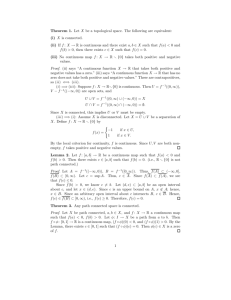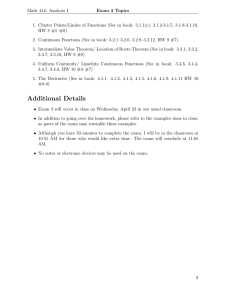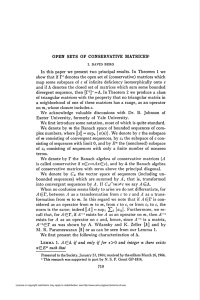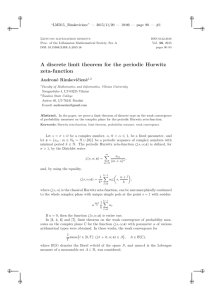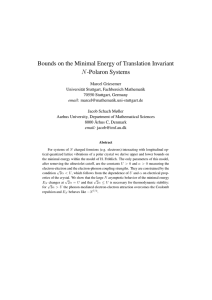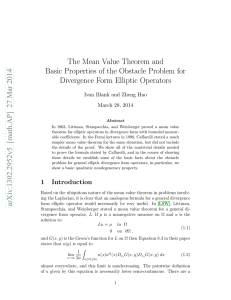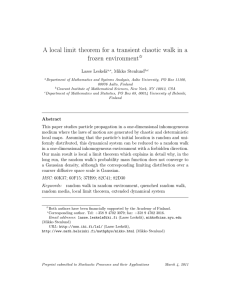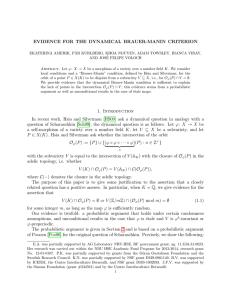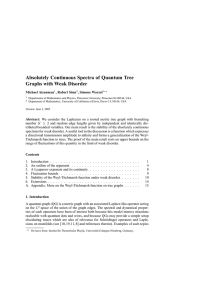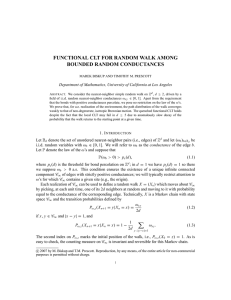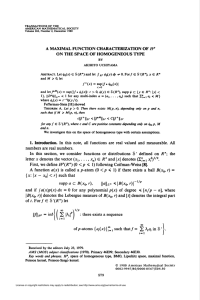Review of “Two identities of derangements” by Le Anh Vinh
advertisement
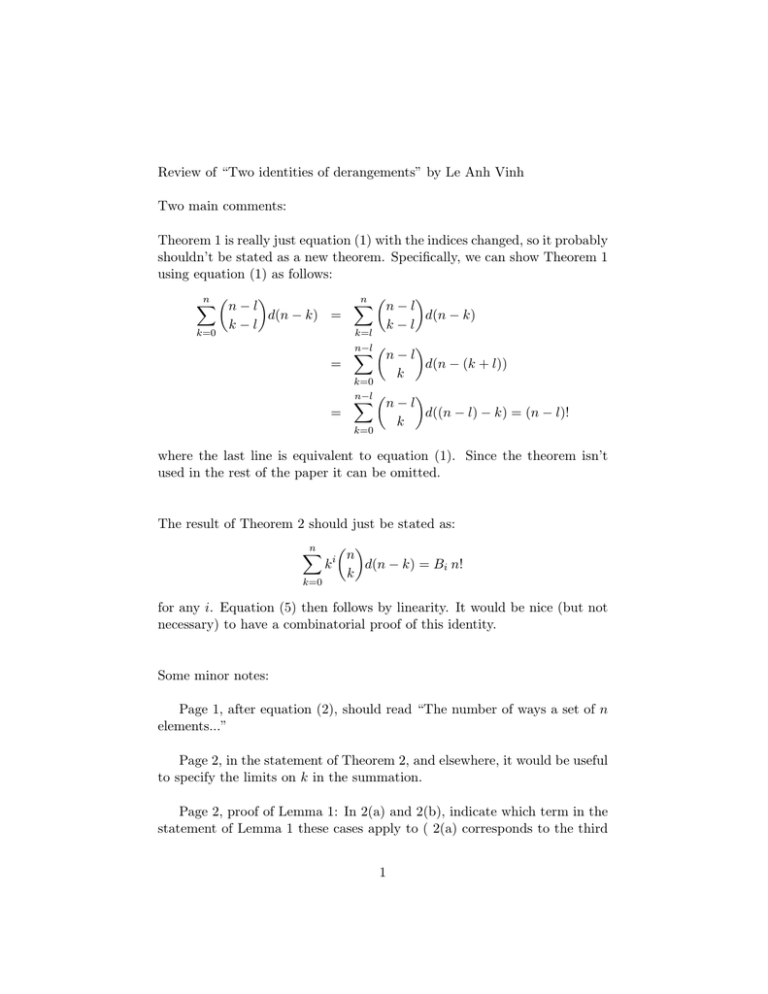
Review of “Two identities of derangements” by Le Anh Vinh Two main comments: Theorem 1 is really just equation (1) with the indices changed, so it probably shouldn’t be stated as a new theorem. Specifically, we can show Theorem 1 using equation (1) as follows: n X n−l k=0 k−l d(n − k) = n X n−l k−l k=l = = n−l X n−l k=0 n−l X k=0 k d(n − k) d(n − (k + l)) n−l d((n − l) − k) = (n − l)! k where the last line is equivalent to equation (1). Since the theorem isn’t used in the rest of the paper it can be omitted. The result of Theorem 2 should just be stated as: n X k=0 n k d(n − k) = Bi n! k i for any i. Equation (5) then follows by linearity. It would be nice (but not necessary) to have a combinatorial proof of this identity. Some minor notes: Page 1, after equation (2), should read “The number of ways a set of n elements...” Page 2, in the statement of Theorem 2, and elsewhere, it would be useful to specify the limits on k in the summation. Page 2, proof of Lemma 1: In 2(a) and 2(b), indicate which term in the statement of Lemma 1 these cases apply to ( 2(a) corresponds to the third 1 term and 2(b) corresponds to the second term). Page 5, second to last line: Change “is the one sending” to “sends”. 2

